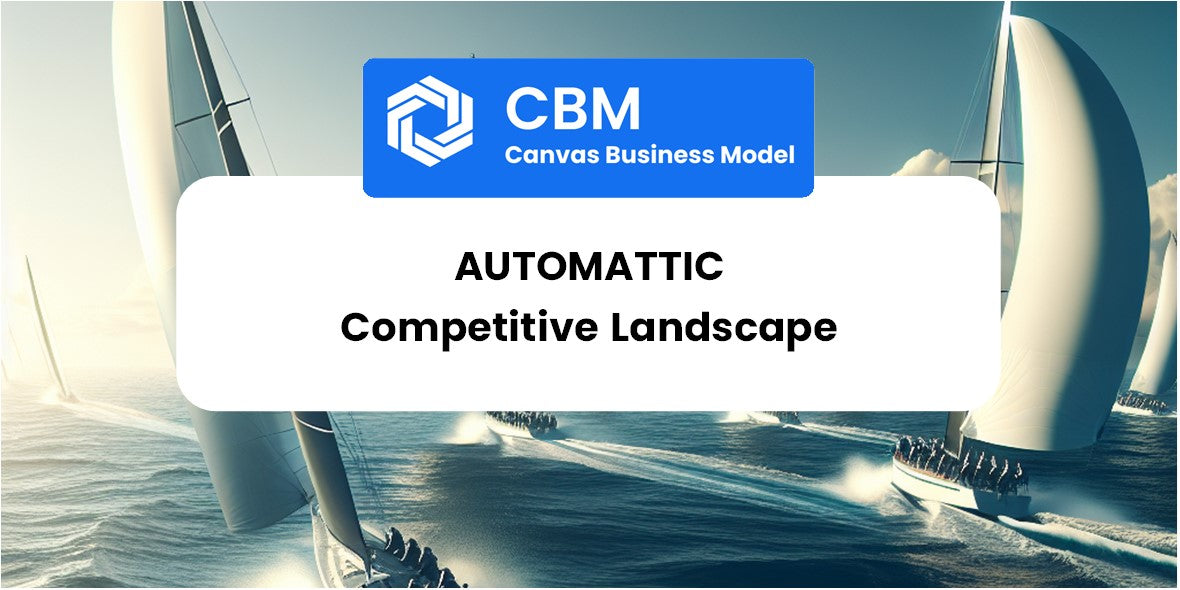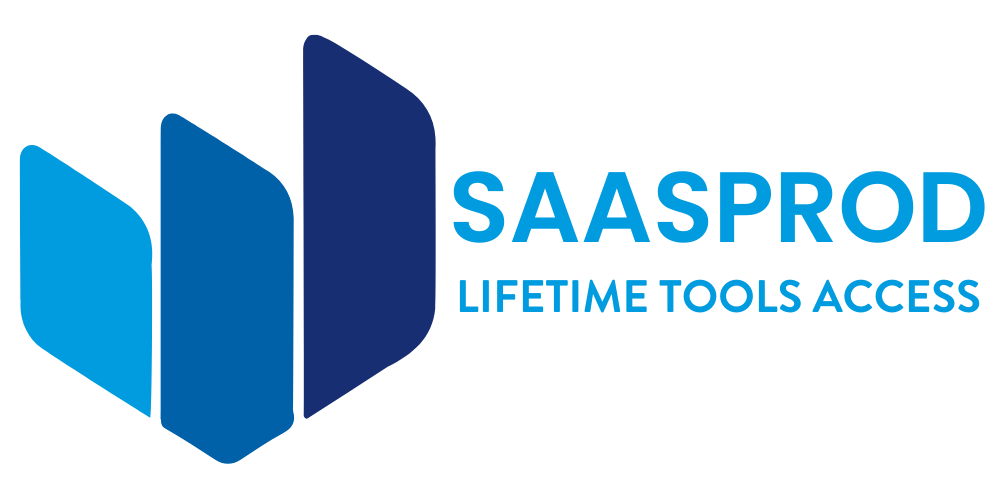In the bustling world of web services and content management, Automattic stands as a notable player. Known for its dedication to improving the web, it offers a range of products that cater to blogging, site-building, and online commerce.
But who are its competitors? Understanding the landscape of Automattic’s rivals provides valuable insights for anyone looking to explore similar services. Automattic has made significant strides with products like WordPress. com, WooCommerce, and Jetpack. These tools have empowered countless users to create and manage their online presence.
Yet, the market is rich with other companies offering similar services. Competitors strive to provide unique features and benefits to attract users. Exploring these alternatives can help you find the best fit for your needs, whether you are a blogger, an entrepreneur, or a digital enthusiast. Let’s dive into the world of Automattic’s competitors and see what they bring to the table.
Introduction To Automattic And Its Purpose
Automattic is a company dedicated to enhancing the web experience. Their focus is on blogging, site-building, and online commerce. They offer various products and services to make the web a better place.
Overview Of Automattic
Automattic, founded in 2005, provides a range of web-enhancing tools. Their products include WordPress.com, WooCommerce, Jetpack, and more. These tools help users create and manage websites, blogs, and online stores. Below is a table summarizing their main features and benefits:
| Product | Feature | Benefit |
|---|---|---|
| WordPress.com | Free blogging and website platform | Provides a free home for your blog or website with customizable features |
| Beeper | Unified messaging app | Consolidates fragmented messaging platforms into one app |
| Tumblr | Social networking and microblogging | Connects users with shared interests through posts |
| Day One | Private journaling app | Allows capturing and preserving personal thoughts and memories |
| WooCommerce | Free eCommerce plugin for WordPress | Enables users to set up and manage online stores easily |
| Jetpack | Comprehensive WordPress plugin | Enhances site safety, growth, and speed |
| WP VIP | Enterprise-level WordPress hosting | Trusted by major companies for robust web management |
| Pocket Casts | Podcast app | Helps users discover new shows and enjoy listening |
| Akismet | Spam filtering plugin | Effectively filters out spam comments on WordPress sites |
| Longreads | Platform for long-form storytelling | Offers in-depth stories for readers to enjoy and share |
| Newspack | Publishing toolset | Helps news organizations publish content, drive revenue, and build audiences |
| Gravatar | Global avatar service | Provides a single profile picture across various platforms |
Why People Look For Alternatives
People seek alternatives to Automattic for various reasons. They might need different features or pricing. Some may prefer other platforms for their specific needs. Here’s a list of common reasons:
- Cost: Users look for more budget-friendly options.
- Specific Features: Some users need features not available in Automattic products.
- User Interface: Preference for a different user experience.
- Support: Desire for better customer support services.
- Customization: Need for more customization options.
Understanding these reasons helps in choosing the right platform for your needs.

Credit: www.comparably.com
Top Competitors Of Automattic
Automattic, known for its diverse web-enhancing products, faces competition from various other companies in the blogging, site-building, and online commerce sectors. Understanding the key competitors can help users make informed decisions about which platform best meets their needs.
Criteria For Selecting Competitors
- Feature Set: Includes blogging, site-building, and eCommerce capabilities.
- Pricing: Offers free and paid plans to meet different budget needs.
- User Base: Trusted by a significant number of users and enterprises.
- Integration: Compatible with various third-party tools and services.
- Support: Provides robust customer support and resources.
Overview Of Top Alternatives
| Competitor | Key Features | Benefits |
|---|---|---|
| Wix |
|
|
| Squarespace |
|
|
| Shopify |
|
|
| Weebly |
|
|
These competitors offer various features, benefits, and pricing plans, making them viable alternatives to Automattic’s range of products and services.
Wix: A Comprehensive Website Builder
Wix is a popular website builder that offers a wide range of features. It caters to both beginners and advanced users. Known for its ease of use, Wix provides a platform to build stunning websites without needing to code.
Features And Benefits
Wix comes with numerous features that make website building effortless. Here are some of the key features:
- Drag-and-Drop Editor: Easily design your website with a simple drag-and-drop interface.
- Templates: Choose from over 500 designer-made templates.
- App Market: Extend your site’s functionality with various apps.
- SEO Tools: Optimize your site for search engines with built-in SEO tools.
- Mobile Optimized: Ensure your site looks great on mobile devices.
- Blogging Platform: Create and manage a blog with ease.
- eCommerce Solutions: Set up an online store to sell products.
Pricing And Affordability
Wix offers various pricing plans to suit different needs and budgets. Below is a summary:
| Plan | Monthly Cost | Features |
|---|---|---|
| Free | $0 | Basic features with Wix branding |
| Combo | $14 | Personal use, no ads, free domain for 1 year |
| Unlimited | $18 | Freelancers & entrepreneurs, more storage |
| Business Basic | $23 | Accept online payments, eCommerce features |
| Business VIP | $39 | Complete suite of business solutions |
Pros And Cons
Understanding the pros and cons of Wix can help in making an informed decision.
Pros:- Easy to use with a drag-and-drop editor
- Wide variety of templates
- Comprehensive SEO tools
- Extensive app market for additional functionalities
- Mobile optimization
- Limited customization for advanced users
- Free plan includes Wix ads
- More expensive than some competitors
- Templates not interchangeable
Ideal Use Cases For Wix
Wix is suitable for various types of websites. Here are some ideal use cases:
- Small Businesses: Perfect for small business owners who need a simple, professional-looking website.
- Freelancers: Great for freelancers who want an online portfolio.
- Bloggers: Excellent for bloggers who need an easy-to-manage platform.
- Online Stores: Ideal for those looking to set up an eCommerce site.
- Personal Websites: Suitable for personal projects and hobbies.

Credit: canvasbusinessmodel.com
Squarespace: Design-oriented And User-friendly
Squarespace stands out as a leading competitor to Automattic, especially for users who prioritize design and ease of use. This platform is known for its sleek templates and intuitive interface, making it a favorite among creatives and small business owners.
Key Features
- Beautiful Templates: Squarespace offers a wide range of professionally designed templates, perfect for showcasing portfolios or creating stylish websites.
- Drag-and-Drop Builder: Users can easily create and customize their websites with a drag-and-drop interface, eliminating the need for coding skills.
- Built-In SEO Tools: The platform includes SEO tools to help improve website visibility on search engines.
- Integrated E-commerce: Squarespace provides robust e-commerce features, allowing users to sell products and manage their online stores effortlessly.
- Mobile Optimization: All templates are mobile-responsive, ensuring websites look great on any device.
Pricing Structure
| Plan | Monthly Cost | Features |
|---|---|---|
| Personal | $12 | Basic website features, free custom domain, SSL security |
| Business | $18 | Advanced website features, e-commerce capabilities, promotional pop-ups |
| Basic Commerce | $26 | Full e-commerce features, no transaction fees, customer accounts |
| Advanced Commerce | $40 | All commerce features, abandoned cart recovery, advanced shipping |
Advantages And Disadvantages
- Advantages:
- User-friendly interface, ideal for beginners
- High-quality, professional design templates
- All-in-one platform with hosting and domain registration
- Disadvantages:
- Limited flexibility compared to open-source platforms
- Higher cost for advanced e-commerce features
- Limited customization options without coding knowledge
Best Scenarios To Use Squarespace
- Personal Portfolios: Squarespace is perfect for artists, photographers, and designers who need a visually appealing platform to showcase their work.
- Small Business Websites: Small business owners can benefit from the easy-to-use interface and integrated e-commerce features.
- Blogs: While not as powerful as WordPress, Squarespace provides a simple solution for bloggers who want a clean and elegant design.
- Online Stores: The platform’s e-commerce capabilities make it suitable for businesses looking to sell products online.
Shopify: E-commerce Focused Platform
Shopify is a leading platform designed specifically for e-commerce businesses. It offers a comprehensive suite of tools to create, manage, and grow online stores, making it a formidable competitor to Automattic’s WooCommerce.
Unique Selling Points
- Ease of Use: Shopify offers an intuitive interface that is easy to navigate, even for beginners.
- Customizable Themes: It provides a wide range of customizable themes to suit various business needs.
- Integrated Payment Processing: Shopify Payments simplifies transactions, reducing the need for third-party payment gateways.
- App Store: Access to over 6,000 apps to extend store functionality.
- 24/7 Customer Support: Reliable customer service available around the clock.
Cost And Value
| Plan | Monthly Cost | Features |
|---|---|---|
| Basic | $29 | Basic store setup, 24/7 support, and basic reports. |
| Shopify | $79 | All basic features, professional reports, and lower transaction fees. |
| Advanced | $299 | Advanced reports, third-party calculated shipping rates, and more. |
Pros And Cons
- Pros:
- Easy to set up and use.
- Wide range of themes and apps.
- Integrated payment processing.
- Excellent customer support.
- Cons:
- Monthly fees can add up.
- Transaction fees unless using Shopify Payments.
- Limited customization compared to open-source platforms.
Who Should Use Shopify
Shopify is ideal for small to medium-sized businesses wanting to establish an online presence quickly. It is perfect for those who prefer a hosted solution with minimal setup. Entrepreneurs looking for an all-in-one platform with excellent support and a rich ecosystem of apps and themes will find Shopify a great fit.

Credit: m.facebook.com
Weebly: Easy-to-use And Affordable
Weebly is a popular website builder known for its simplicity and affordability. It is a strong competitor to Automattic, offering tools that cater to both beginners and small businesses. With its drag-and-drop interface, Weebly allows users to create professional-looking websites without any coding knowledge.
Main Features
- Drag-and-Drop Builder: Weebly’s intuitive drag-and-drop builder makes it easy to create custom layouts.
- Responsive Themes: Offers a wide range of mobile-responsive themes to choose from.
- Integrated eCommerce: Built-in eCommerce tools for online stores, including inventory management and payment options.
- SEO Tools: Basic SEO features to help improve site visibility on search engines.
- App Center: Access to various apps to extend the functionality of your site.
Pricing Details
| Plan | Price | Features |
|---|---|---|
| Free | $0/month | Basic features, Weebly branding |
| Personal | $6/month | Custom domain, no Weebly ads |
| Professional | $12/month | Advanced site stats, video backgrounds |
| Performance | $26/month | Priority support, advanced eCommerce features |
Strengths And Weaknesses
- Strengths:
- Easy-to-use interface, suitable for beginners
- Affordable pricing plans
- Good range of templates and themes
- Integrated eCommerce options
- Weaknesses:
- Limited design customization compared to competitors
- Basic SEO tools
- Less flexibility for advanced users
Recommended Users
Weebly is ideal for small businesses, bloggers, and individuals who need a simple and affordable way to build a professional-looking website. Its user-friendly interface makes it suitable for those with no prior web development experience.
Ghost: Ideal For Bloggers And Content Creators
Ghost stands out as a powerful platform tailored specifically for bloggers and content creators. Unlike other comprehensive CMS options, Ghost focuses on delivering a seamless writing and publishing experience. Its simplicity and clean design make it a favorite among writers who want to focus on content without distractions.
Core Features
- Markdown Support: Ghost uses Markdown, which is a lightweight markup language with plain text formatting syntax.
- SEO Optimization: Ghost has built-in SEO tools to help your content rank better in search engines.
- Membership and Subscription: Ghost allows you to create membership sites with subscription options.
- Theme Marketplace: Choose from a variety of themes to customize the look and feel of your blog.
- Integration: Easily integrates with popular tools like Google Analytics, Zapier, and more.
Affordability And Plans
Ghost offers several pricing plans to suit different needs:
| Plan | Price | Features |
|---|---|---|
| Basic | $9/month | 1,000 members, Basic integrations, Core features |
| Standard | $29/month | 2,000 members, Advanced integrations, Enhanced features |
| Business | $79/month | 5,000 members, Premium support, Full features |
Pros And Cons
| Pros | Cons |
|---|---|
| Simple and clean interface | Limited customization options |
| Great for SEO | Can be expensive for small blogs |
| Markdown support | Requires some technical knowledge to set up |
When To Choose Ghost
- If you are a serious blogger focused on content creation.
- If you need a platform with built-in SEO tools.
- If you want to build a membership site with subscription options.
- If you prefer a clean, distraction-free writing environment.
Bigcommerce: Scalable E-commerce Solution
BigCommerce offers a robust platform for businesses looking to scale their online stores. It provides powerful tools and features to help retailers manage their e-commerce operations efficiently. This section explores the notable features, pricing options, pros and cons, and ideal use cases for BigCommerce.
Notable Features
BigCommerce is packed with features designed to support growing businesses. Here are some key highlights:
- Advanced SEO Tools: Improve your store’s visibility on search engines.
- Multi-Channel Selling: Sell on various platforms like Amazon, eBay, and social media.
- Customizable Templates: Beautiful, responsive templates that fit any brand.
- Secure Payments: Integrations with leading payment gateways.
- Analytics and Reporting: Detailed insights into your store’s performance.
- Scalability: Handle large catalogs and high traffic with ease.
Pricing Options
BigCommerce offers different pricing plans to cater to various business needs. Here is a summary:
| Plan | Price | Features |
|---|---|---|
| Standard | $29.95/month | Basic features, no transaction fees, unlimited products |
| Plus | $79.95/month | Advanced marketing tools, abandoned cart saver |
| Pro | $299.95/month | Custom SSL, product filtering, Google customer reviews |
| Enterprise | Custom pricing | High-volume features, priority support, custom solutions |
Pros And Cons
Every platform has its strengths and weaknesses. Here’s a look at BigCommerce:
Pros- Scalability: Suitable for both small and large businesses.
- Multi-Channel Integration: Sell across multiple platforms seamlessly.
- No Transaction Fees: Keep more of your revenue.
- Price: Higher pricing compared to some competitors.
- Complexity: Can be overwhelming for beginners.
- Limited Themes: Fewer free template options.
Ideal Use Cases For Bigcommerce
BigCommerce is best suited for businesses with specific needs:
- Growing Retailers: Businesses expanding their online presence.
- Multi-Channel Sellers: Those selling on multiple platforms.
- High-Traffic Stores: Stores that handle large volumes of traffic and transactions.
BigCommerce provides a scalable and feature-rich solution for e-commerce businesses. Whether you’re starting out or looking to grow, it offers tools and flexibility to support your journey.
Comparison Of Features Across Competitors
Automattic is a major player in the web development and e-commerce space, offering a variety of products designed to enhance the online experience. Below, we compare the features of Automattic’s offerings with those of its competitors in four key areas: website design and customization, e-commerce capabilities, SEO and marketing tools, and customer support and resources.
Website Design And Customization
| Feature | Automattic (WordPress.com) | Wix | Squarespace |
|---|---|---|---|
| Customizable Templates | Yes | Yes | Yes |
| Drag-and-Drop Editor | No (Gutenberg Block Editor) | Yes | Yes |
| Mobile Responsiveness | Yes | Yes | Yes |
| Third-Party Integrations | Extensive | Limited | Moderate |
E-commerce Capabilities
| Feature | Automattic (WooCommerce) | Shopify | BigCommerce |
|---|---|---|---|
| Product Management | Comprehensive | Comprehensive | Comprehensive |
| Payment Gateways | Multiple Options | Multiple Options | Multiple Options |
| Inventory Tracking | Yes | Yes | Yes |
| Shipping Options | Customizable | Customizable | Customizable |
| Extensions and Plugins | Extensive | Moderate | Moderate |
Seo And Marketing Tools
| Feature | Automattic (Jetpack) | Wix | Squarespace |
|---|---|---|---|
| SEO Optimization | Advanced | Basic | Moderate |
| Analytics and Reporting | Comprehensive | Basic | Moderate |
| Email Marketing | Integration Available | Built-In | Built-In |
| Social Media Integration | Yes | Yes | Yes |
Customer Support And Resources
| Feature | Automattic | Wix | Squarespace |
|---|---|---|---|
| 24/7 Support | Yes | Yes | No |
| Knowledge Base | Extensive | Moderate | Moderate |
| Community Forums | Yes | Yes | Yes |
| Video Tutorials | Yes | Yes | Yes |
Frequently Asked Questions
What Kind Of Company Is Automattic?
Automattic is a technology company specializing in web development. They are the creators of WordPress. com, WooCommerce, and other web products.
Is Automattic The Same As WordPress?
No, Automattic is not the same as WordPress. Automattic is the company behind WordPress. com. WordPress is an open-source software.
Who Are Vip Competitors?
VIP competitors include companies like Priority Pass, LoungeKey, and Diners Club. These companies offer similar airport lounge access services.
Who Are Atlas Competitors?
Atlas competitors include Google Maps, Bing Maps, Apple Maps, MapQuest, and Waze. These platforms offer similar mapping and navigation services.
Conclusion
Exploring Automattic’s competitors reveals a diverse market. Each offers unique strengths. From WordPress.com to WooCommerce, Automattic provides robust web solutions. Interested in their services? Visit Automattic for more information. Choose what’s best for your needs. Happy website building!


